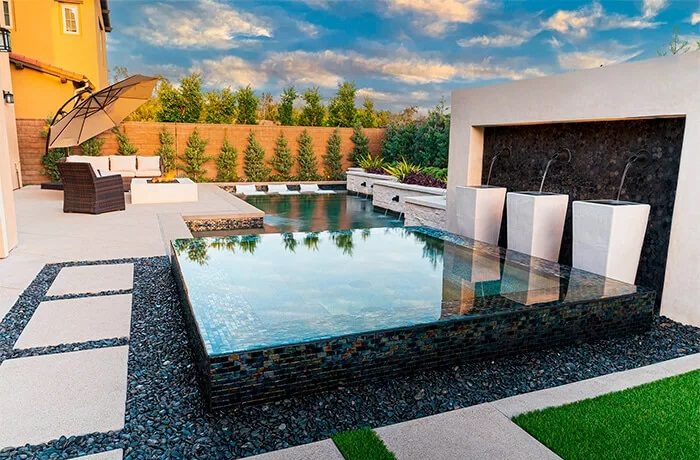It’s important to know the local laws governing pool installations in your area before beginning any pool construction projects. Certain towns have laws governing the layout, design, and safety of swimming pools. These rules frequently include zoning requirements that specify where on your property you can build a swimming pool. For example, you might need to build a setback from the property boundaries, which will restrict how close you can build a pool to your house or the lot’s edges. Make sure you are completely aware of the laws that may affect your project before moving forward with any plans by consulting the zoning office or building department in your community.
Securing Necessary Permits
Getting the required permits is the next step when you have a strong understanding of the local laws. Whether it’s an above-ground or below-ground pool, most jurisdictions require a building permit for any kind of pool installation. The intricacy of this process can vary, but in general, it entails submitting a site plan and design requirements for approval to the permitting authorities. In order to verify compliance with safety and building codes, inspections at different phases of construction may also be part of the approval process.
Safety Regulations to Consider
When building a pool, safety is the first concern, and there are a number of safety rules that need to be followed. Local laws usually require the installation of pool barriers, such gates or walls, to keep people out, especially kids. Choosing the high performing pool construction st Louis service is the best choice here. The recommended height of the barrier, the distance between slats, and even the kind of gates that are utilized are restricted in many places. It’s also possible that there are specifications for steps and ladder positioning, pool coverings, and alarms. To prevent future pool safety-related liabilities or possible fines, make sure you are aware of these safety precautions.
Insurance Implications
There are additional insurance-related ramifications associated with pool construction that should be taken into account. Speak with your homeowner’s insurance provider about any necessary policy adjustments before you begin the construction process. Your liability exposure may grow with the addition of a pool, so you may need to modify your coverage. Sometimes, before agreeing to cover the pool, your insurance company may even demand that certain safety precautions be taken. Early awareness of these consequences can help you avoid future legal issues and unanticipated costs.
Conclusion
Permits and regulations can be intimidating, thus professionals are usually recommended. Hiring a pool contractor with local code and permitting skills will speed up the job. These experts can help with paperwork, permits, and pool safety. A landscape architect or designer can assist match the pool to your home. Professional counsel speeds up the legal process and ensures a successful, compliant pool construction project.















